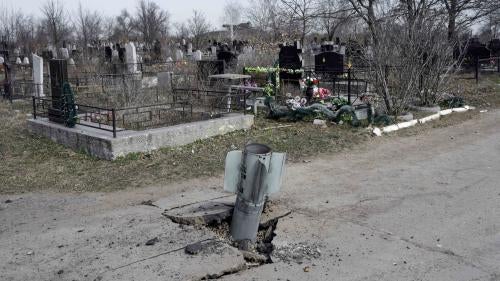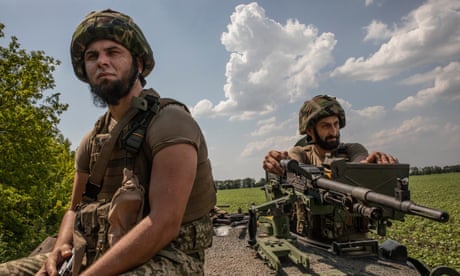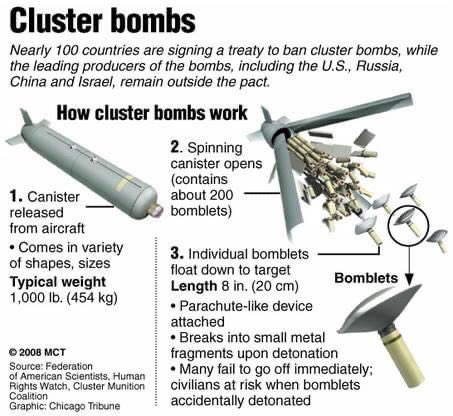Zelenskyy demanded more weapons
U.S. Caves on Cluster Bomb Aid to Ukraine
Washington’s latest military package will include controversial weapons despite international opposition.
The Power of Cluster Bombs that Scatters Countless Submunitions
Footage of a drop test of three types of Cluster Bomb Units (CBU-87, CBU-103 and CBU-105) at the Nevada Test and Training Range.Click here to Subscribe USA M...
‘Terrible mistake’: human rights groups decry sending cluster bombs to Ukraine
Joe Biden faces backlash from organizations and from within his own party for greenlighting transfer of the weapons
- Cluster munitions are prohibited by more than 100 countries.
- They typically scatter numerous smaller bomblets over a wide area, sometimes as big as a football pitch, and can kill indiscriminately.
- Those that fail to explode threaten civilians, especially children, for decades after a conflict ends.
But there is concern in Washington and other western capitals at the slow progress of Ukraine’s summer counteroffensive, as the war approaches its 500th day on Saturday. Ukrainian commanders say their dug-in Russian opponents have superiority in artillery and heavy tanks, limiting the ability of their troops to advance.
On Friday, the Pentagon announced a new $800m military aid package to Ukraine that includes cluster munitions. Jake Sullivan, Biden’s national security adviser, told reporters at the White House: “We recognise that cluster munitions create a risk of civilian harm from unexploded ordnance.
“This is why we deferred the decision for as long as we could. But there is also a massive risk of civilian harm if Russian troops and tanks roll over Ukrainian positions and take more Ukrainian territory and subjugate more Ukrainian civilians because Ukraine does not have enough artillery.”
He added: “That is intolerable to us. Ukraine would not be using these munitions in some foreign land. This is their country they’re defending. These are their citizens they’re protecting and they are motivated to use any weapon system they have in a way that minimises risks to those citizens.”
Ukraine’s president, Volodymyr Zelenskiy described the aid package as “timely, broad and much-needed defense”, in a tweet thanking Biden for “decisive steps that bring Ukraine closer to victory over the enemy”.
“The expansion of Ukraine’s defense capabilities will provide new tools for the de-occupation of our land and bringing peace closer,” he wrote.
- The timing is complicated for Biden, who travels to Europe for a NATO meeting in Vilnius, Lithuania, next week.
- Jens Stoltenberg, the Nato secretary general, stressed on Friday that the military alliance takes no position on cluster munitions. “So it is for these individual allies then to make those decisions,” he told reporters in Brussels.
But human rights organizations sharply criticised the president’s decision, noting that at least 149 civilians were killed or injured worldwide by the weapon in 2021, according to the Cluster Munition Monitor.
- Most US allies – including Britain, Germany and France – signed on to the UN’s Convention on Cluster Munitions in 2008.
- America, Russia and Ukraine never signed the treaty, insisting that there are circumstances in which use of the weapons is necessary.
Paul Hannon, vice-chair of the International Campaign to Ban Landmines and Cluster Munition Coalition Governance Board, said: “The Biden administration’s decision to transfer cluster munitions will contribute to the terrible casualties being suffered by Ukrainian civilians both immediately and for years to come. Russia and Ukraine’s use of cluster munitions is adding to Ukraine’s already massive contamination from explosive remnants and landmines.”
- ...The last concerted American use of cluster bombs was during the 2003 invasion of Iraq, according to the Pentagon.
- But US forces considered them a key weapon during the invasion of Afghanistan in 2001, according to Human Rights Watch.
- In the first three years of that conflict, it is estimated the US-led coalition dropped more than 1,500 cluster bombs in Afghanistan.
Continue > The Guardian
RELATED











No comments:
Post a Comment